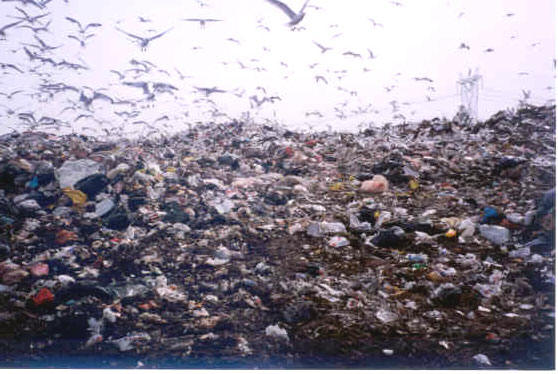One such perk being the return policy. Let us try evaluating the impact of one returned good on the environment.
Image source: kotv.images.worldnow.com
Each time a consumer walks in to return his purchase, he gets his money back.Examining the retailer's side of the story - allowing customers to feel empowered means ensuring themselves (retailers) a loyal customer base and also a possible increase in the number of customers. It sounds like a win-win right !! Rather, the actual story may be otherwise. All this has a cost, in terms of economics and the environment.One of the three things is what happens to the product.
- It is dumped in a trash can if it is a produce or a consumable,
- sent back to the supplier if the product is faulty
- goes back to the shelf for a reduced (open pack) price.
How does this happen?
Every return adds up to the operational and overhead costs for the retailer. By law, retailers and suppliers have a limit on the number of products they can account for as write-offs. They have to consider logistics cost and stocking/inventory management of the returns before they are sent in through the proper channels (as mentioned above). All this means added costs for retailers/suppliers and a an inevitable struggle to remain competitive in a cut throat franchisee environment. This could mean quality deterioration. Although consumers may not observe sudden drop in quality, it does happen over a period of time. Every retailer tries to increase pressure on the suppliers, manufacturers and transporters to keep costs low. But that doesn't happen always. At least a part of the costs have to be borne by the retailers themselves. That means costs are invisibly passed onto consumers. Thereby we, as consumers, have unknowingly increased the future costs for ourselves.
Impact on the environment...
Let us look beyond our wallets and assess this issues in terms of impact on the environment. Environmental costs associated with every product begins from its source of raw material, adds up through the entire value chain and ends with its consumption and disposal of packaging products. Use of non bio-degradable products adds to the stress on the environment as they are here to stay - forever!
For a product to qualify as being environment friendly, it needs to be green at every stage in supply chain/value chain.
As I mentioned in one of my earlier posts, manufactures and retailers are supposed to account for the impact their product has on the environment, this process is environmental accounting. Every Enterprise Resource Planning software has a provision for this accounting process. I have my own doubts whether a profit-oriented organization will ever look into the environmental aspect seriously. Eco-impact calculators are supposed to be a part of every audit which happens in companies. What bothers me is if they ever look at these modules beyond their computer screens and the spreadsheets.
What we could do...
We as consumers can work on our consumption patterns and think twice before billing a product. It is difficult to see why many Indian friends of mine have eased themselves so well into this binging mentality. Indian retail industry never allowed for returns or even exchanges in some cases. Consumers have to be conscious of what they buy. What I cant come to terms with is the way Indian consumers behave in the USA. Cheap and shady behavior of (Indian) consumers in the US, and things they get away with is shocking. Does it never occur to them that it is going to come back to them (in true economic sense). That is how economics works!...and it doesn't take an Amartya Sen to understand this.
Do we need to add more than the usual to this?
Image source: newyorkpersonalinjuryattorneyblog.com



No comments:
Post a Comment